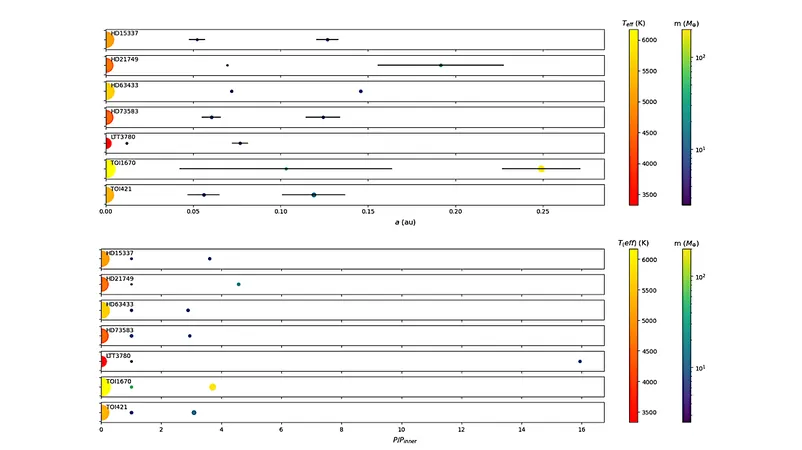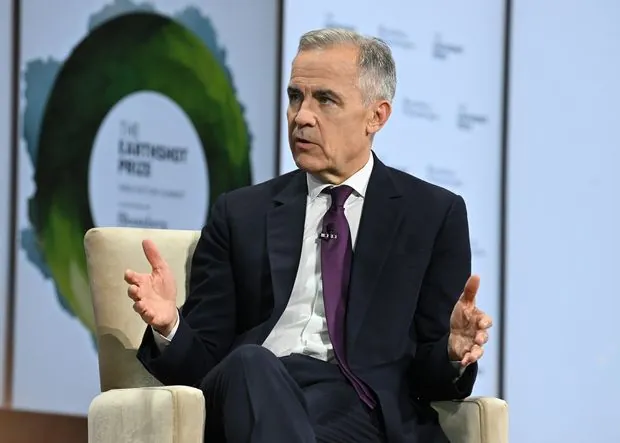
Unraveling the Democrats’ Electoral Defeat: Did Inflation Sink the Ship?
2024-11-08
Author: Michael
In a stunning turn of events, Donald Trump secured a major victory this week, marking a significant comeback and a loud statement against the Democratic presidential campaign led by Kamala Harris. Despite raising over $1 billion for advertisements, the national vote tallies reveal Trump leading by millions, with Harris failing to win in any of the crucial battleground states that Democrats had hoped to clinch.
From the Rust Belt to the Sun Belt, a broad base of Americans expressed growing disenchantment with the Democratic Party. In traditionally liberal strongholds, such as New York, an increasing number of voters opted for Trump—evidence of a nationwide revolt fueled by economic frustration. Analyst Mike Nellis voiced a stark reality: “I don’t even think if you slotted in Barack Obama right now that we would have won this election. People are not buying what we’re selling.”
Some speculate that President Joe Biden's prolonged tenure has led to questions about his effectiveness, while others point to enduring societal biases that may hinder acceptance of a female president. There has even been conjecture about whether courting figures like Elon Musk could have turned the tides.
Nevertheless, many voters' choices seem rooted in more tangible concerns, particularly inflation. Economic indicators show significant price hikes during the campaign period compared to Trump's presidency, with essentials like milk and gasoline becoming markedly more expensive. These financial worries clearly resonated with voters. Matt McGee, a small-business owner from Georgia, captured the sentiment perfectly: “It’s been an awful four years... the high prices on everything. The future did not look bright for the rest of us.”
Polling data before the election consistently showed that the state of the economy eclipsed all other issues in importance, with many voters perceiving Trump as the more competent steward of financial matters. The pandemic has intensified global inflation, and incumbents in democracies worldwide face a similar backlash.
Interestingly, voters’ decisions didn’t align neatly along party lines. For instance, while Montanans approved abortion access, they still voted overwhelmingly for Trump. Additionally, many Arab Americans pivoted away from Democrats, expressing dissatisfaction with the party’s stance on Israel, while others rejected the party over immigration concerns.
Amidst these shifting allegiances, Ms. Harris fared better among higher-income households, despite her losing ground among middle- and lower-income voters. Trump emerged victorious, significantly gaining traction among the nation’s financially vulnerable. Studies suggest that the poorest Americans bore the brunt of the pandemic’s health impacts and subsequent economic strain, resulting in a widespread sense of grievance.
Fred Bergsten, an economist, emphasized the detrimental effects of inflation, especially for lower-income citizens. Disadvantaged Americans have faced long-standing income disparities and the harsh reality of life expectancy gaps against their wealthier counterparts. The devastation wrought by COVID-19, which claimed over 1.2 million American lives, has compounded societal grief.
As the pandemic waned, inflation burgeoned, leading many to feel that a broader systemic failure was at play. Economists and political analysts suggest that Trump, who positioned himself as the solution to this inflation crisis, effectively tapped into the electorate’s anxiety. By scapegoating migrants and promising to reverse onerous taxes for workers, he drew in significant support.
The Harris campaign, conversely, struggled to connect emotionally with voters according to Republican strategist Jai Chabria, who noted that Democrats came off as elitist and disconnected. “The Democrats have become the party of the elite," he argued, while Republicans have branded themselves as champions of the working and middle classes.
Remarkably, as the economy roared back with rising wages, which have surged for low-income workers, Harris was still seen as inadequate in addressing economic woes. Her promises for tax relief and assistance for first-time homebuyers seemed to fall flat against voters' prevailing inflationary concerns that overshadowed her campaign initiatives.
Throughout the election, persistent racial and identity issues emerged, with heightened scrutiny on whether the race of candidates influenced voter reactions. Despite Harris's attempt to relate to different demographics, significant sections of the electorate, particularly white voters, gravitated towards Trump, revealing a complex interplay of factors at play.
The aftermath of this election has unveiled troubling sentiments, including racist taunts and a palpable anxiety among marginalized groups about the incoming administration's policies. Meanwhile, those who supported Trump, despite economic criticisms against his record, remained hopeful of his potential to lead the country towards recovery, reflecting a disenchanted electorate looking for change.
As economists predict that Trump’s proposals may indeed exacerbate inflation, many voters find themselves in a precarious dilemma, driven by personal economic fears rather than political affiliation. Ultimately, the question remains: what does the future hold for a fractured political landscape, and can the Democrats reclaim their standing in a rapidly evolving electorate?









 Brasil (PT)
Brasil (PT)
 Canada (EN)
Canada (EN)
 Chile (ES)
Chile (ES)
 España (ES)
España (ES)
 France (FR)
France (FR)
 Hong Kong (EN)
Hong Kong (EN)
 Italia (IT)
Italia (IT)
 日本 (JA)
日本 (JA)
 Magyarország (HU)
Magyarország (HU)
 Norge (NO)
Norge (NO)
 Polska (PL)
Polska (PL)
 Schweiz (DE)
Schweiz (DE)
 Singapore (EN)
Singapore (EN)
 Sverige (SV)
Sverige (SV)
 Suomi (FI)
Suomi (FI)
 Türkiye (TR)
Türkiye (TR)